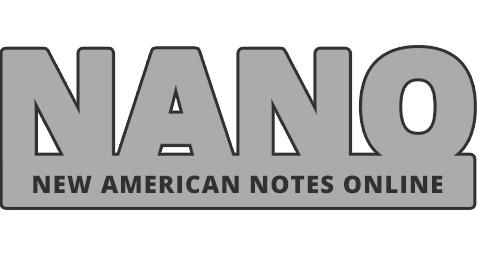Journal Information
#
ISSN: 2160-0104
NANO's Mission:
The goal at NANO is to invigorate humanities discourse by publishing brief, peer-reviewed reports with a fast turnaround enabled by new technologies. We welcome original notes from all fields in the humanities, particularly literature, film, history, music, rhetoric, philosophy, art, and digital humanities. We also welcome views from other disciplines that include, but are not limited to: psychology, sociology, engineering, various fields of technology, the hard sciences, and business. Each issue focuses on a special topic designed to encourage new interpretations and new possibilities. We abjure jargon, pandering, and ad hominem responses. Our ethos is brevity, clarity, and elegance. We do not accept fiction or poetry; we do accept images, videos, and sound recordings used in the presentation of notes. NANO welcomes creative reflections, spirited debate, and cross-disciplinary dialogue.
NANO's Peer Review Process:
Published notes undergo a two-step review process. First, guest editors and the NANO editorial staff assess each submission. Second, submissions that pass this initial reading are sent to specialists for blind review. NANO's goal is to provide at least two detailed reports for each submission that reaches the anonymous review stage, thereby emphasizing scholarly conversation and exchange. Reviewed submissions receive one of three designations: Accept with Minor Revisions, Revise and Resubmit, and Reject. Before notes are published, guest editors, NANO's editorial team, and author(s) negotiate the revision process in order to ensure satisfaction for all parties involved.
NANO's Open Access Statement:
NANO is an Open Access journal, which means that the editors and contributors of this journal believe that the research, content, and scholarly conversation contained in this journal should be freely available to the public. Open Access is an online philosophy that fosters useful critique and creates a culture of sharing. The Budapest Open Access Initiative more fully explains NANO’s position: “By ‘open access’ to this literature, we mean its free availability on the public internet, permitting any users to read, download, copy, distribute, print, search, or link to the full texts of these articles, crawl them for indexing, pass them as data to software, or use them for any other lawful purpose, without financial, legal, or technical barriers other than those inseparable from gaining access to the internet itself. The only constraint on reproduction and distribution, and the only role for copyright in this domain, should be to give authors control over the integrity of their work and the right to be properly acknowledged and cited.”
NANO's Archiving Statement:
NANO has been selected by the Library of Congress for long-term archiving and storage. More specifically, the Library of Congress Web Archive Collections will create a catalog record for NANO. In addition, the Library of Congress Web Archive Collections will link (from their catalog) to NANO's live (online) site as well as to the archived site that the Web Archive Collections will maintain. In July 2015, the Library of Congress Web Archive Collection began harvesting NANO; public access began in December 2018.
NANO's Citation Integrity Statement:
NANO believes that citation coercion, manipulation, and promotional self-citation are unethical practices that harm journals, authors, and the larger academy. Citation is important to the ways in which knowledge is shared, how it grows, and how it is interpreted and evaluated. Because citations affect careers and publication survival, it is crucial that NANO editors and authors communicate openly about citation questions or concerns during the entire publication process: submission, review, editing, pre-publication, and post-publication.
According to Committee on Publication Ethics’ (COPE) forum on citation manipulation, “excessive self-citation by a journal, whereby articles are found to contain references that do not contribute to the scholarly content of the article and have been included solely for the purpose of increasing citations, misrepresents the importance of the specific work and journal in which it appears and is thus a form of scientific misconduct. When practiced by editors, with the compliance of senior investigators, it not only contaminates the literature but also sends a message to younger investigators that unethical behaviour is acceptable.” NANO ’s editorial team agrees with COPE’s statement that “there can be many instances of legitimate reasons for self-citation.” As a general rule, NANO does not accept author self-citations except for cases where a citation itself is a requisite part of an argument or when a citation is necessary to substantiate an argument; an author’s publication on the same topic/field as their NANO submission is not grounds for inclusion in the Works Cited.
Questions, concerns, or complaints should be sent to the editor, Sean Scanlan, at [email protected].
NANO's Copyright and License Statement:
Authors of accepted texts assign to NANO the right to publish and distribute their work electronically, which includes web publication, archiving, and permanent electronic retrieval.
Authors retain their copyright interest in their work. However, after an author's text has appeared in NANO, they may republish their text in any manner they wish—electronic or print—so long as they clearly acknowledge NANO as its original site of publication.
Publications that appear on NANO accord with an Attribution—NonCommercial—ShareAlike 4.0 Creative Commons license. This means the following: a user must give the original author(s) credit; users may not use the work for commercial purposes; and users must allow future users the same Creative Commons license that NANO has granted. However, any of these conditions can be waived if users receive permission from the copyright holder.
